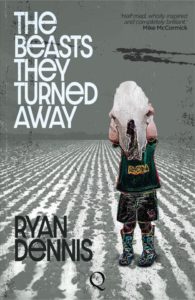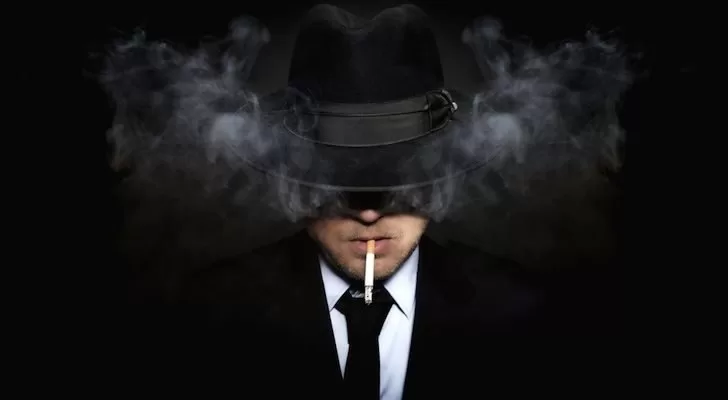I was admittedly intrigued when an Icelandic farmer told me his town was owned by the mafia. I could imagine The Godfather playing out much differently in the north, where a horse head is more likely to be dinner rather than a threat, and the gangsters would be hard to tell apart because they would all be wearing wool sweaters.
A cooperative named KS had started a meat-packing plant there. Before long, they owned the truck dealership – and then the fish processing plant.
“Now they have the whole town,” the farmer said, “including the grocery store and all three restaurants.”
They got into the milk business as well, representing the farmers in the area. They typically offered a higher price for milk and gave loans to people who needed a new tractor or to improve their barn. They got them in touch with other farmers who had a piece of machinery they needed to borrow and helped lobby for them in political matters.
I asked my friend what it was like being part of KS. He winked and said, “It’s good to be part of the family.”
I needed to get in contact with farmers for my project in Iceland, but the main milk cooperative, Auðhumla, wouldn’t give me the names of their members. Then my friend put me in touch with Jón Þór, second in command at KS.
(Mafia fact: The head never shows his face – all contact is with the underboss below him). The name itself sounded mobster-ish, like a guy used to bashing heads in, until I found out every third man in Iceland shared it as well.
I explained to Jón Þór that I needed to find farmers to write about. “My pleasure,” he said. “What else can I do for you? Want to talk with some researchers? Maybe you want to see our cheese plant? Anything you need.”
The farmer was right. It was good to be part of the family.
The term “milk mafia” has arisen in the U.S. to denote the control that Dairy Farmers of America, Dean Foods and the large processors and retailers have over the market. DFA’s scandal has only bolstered their image as the face of “organized crime.” Some contend that the cooperative structure in America has failed its farmers. What if it’s time to get the real Mafia involved?
This is how I’d see it playing out:
Instead of an FSA office, I’d be escorted into a dark, smoky room in the back of a bowling alley. Joey “The Face” Manzino would be sitting behind the desk, a big cigar in his mouth.
“You’re looking good, Joey,” I’d say as I sat down. “Those squats are paying off for ya.”
“Ah, forget about it, ya schmoozing cowpoke.” He’d pour a couple of glasses of cognac and hand me one. “How’s the cows milking?”
“They’re doing good, Joey.”
“And the wife, she got nice things to wear?”
“She’s a good woman, Joey.”
Joey The Face would lean back in his chair and crack his knuckles. His gold rings would catch a glare from the neon sign outside. He’d wait until we both finished our glass before talking business. “So what can I do for ya? Need some new treads? I got a fella that has a rear set for a Deere. A real wiseguy, you know?”
“I’m good, Joey.”
“Maybe some bred heifers? An associate of mine’s looking to unload a few.”
“I need a spring loan for corn seed.”
“Forget about it. I’ll get you the seed myself. I know someone who knows someone with some Dekalb, some real smooth stuff.”
“You’re too good to me, Joey.”
“Forget about it, Kid. I got you. Swear on the model of the true-type cow.” At that point he’d rap the Holstein figurine on his desk with the ring on his index finger, as he had a habit of doing. “Things good otherwise?”
“Just the same old feed bill collectors breathing down my neck,” I’d say. “Another day at the office, you know?”
“Someone bothering you? They trying to put the squeeze on?”
“Ah, forget about it.”
“What’s this ‘forget about it?’ We take care of these things. Listen, I’m sending Johnny The Jackhammer down.”
“You’re too good to me, Joey. Ya really are.”
“Ah, forget about it,” he’d say, pushing his hands in front of him. “You’re part of the family. Come here.” He’d motion me in and then hug the back of my neck with his hands. “You’re a good boy, Ryan,” he’d say, tapping me on the cheek. “You’re a good boy.”
Then he would lean back again and fill our cognac glasses one more time. “This is farming,” he’d say. “As it should be. It’s about time somebody got the farmer’s back.” Then he’d blow smoke rings from his cigar and watch them float to the ceiling. “Now about those tires …”
This article is part of The Milk House column series, published in print across three countries and two languages. It can also be found at themilkhouse.org.
This article appeared in a similar form in Progressive Dairyman.
*
Ryan Dennis is the author of the novel The Beasts They Turned Away, available internationally.
 Íosac Mulgannon is a man called to stand.
Íosac Mulgannon is a man called to stand.

